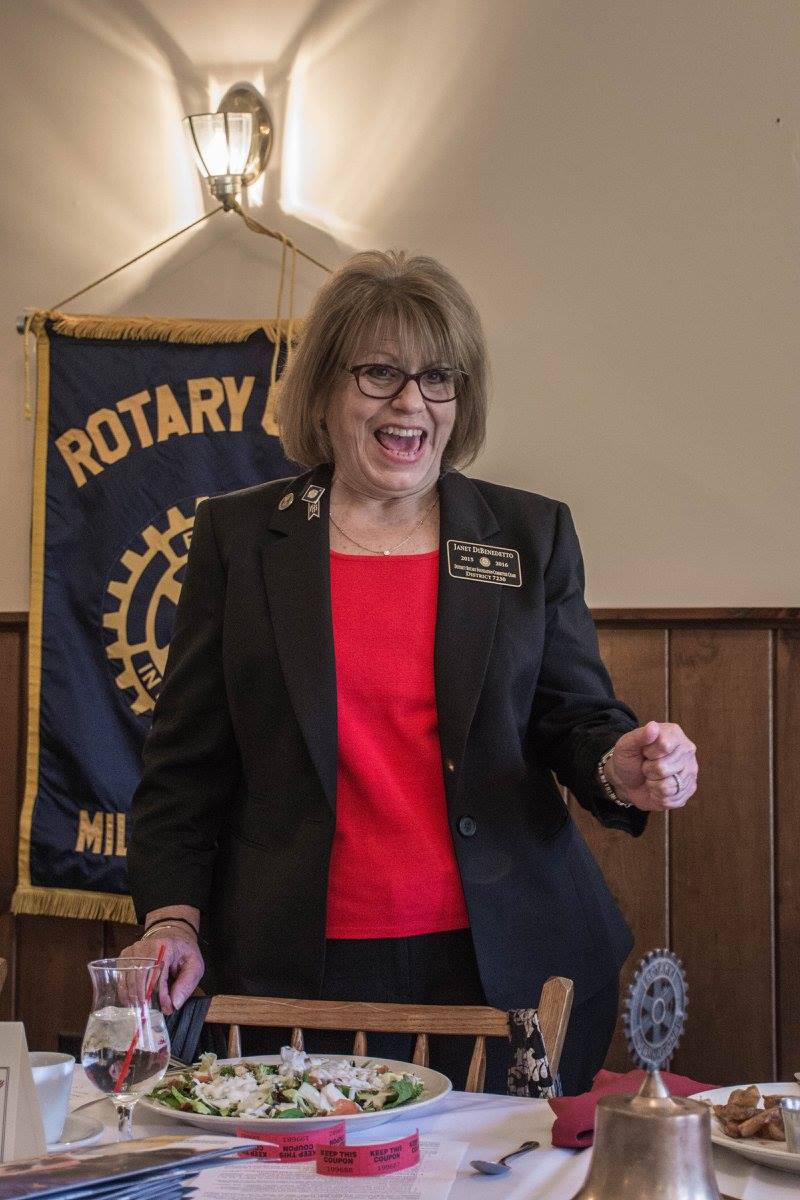Mysteries and Misunderstandings about The Rotary Foundation
 One of the misunderstandings of The Rotary Foundation is that all of its work is abroad, but there can be global grants for needs in the United States. One local example is a global grant that helps provide $80,000 to improved conditions in a poverty-ridden neighborhood of Yonkers. This was secured by Bronxville Rotary, which teamed with a Rotary club from Taiwan, which pitched in $10,000 to aid the project. Although it is common to work internationally on grants, two clubs in the U.S. can combine their efforts. Peekskill and Poughkeepsie-Arlington raised $5,000 for a water project in Haiti, matched by The Rotary Foundation.
One of the misunderstandings of The Rotary Foundation is that all of its work is abroad, but there can be global grants for needs in the United States. One local example is a global grant that helps provide $80,000 to improved conditions in a poverty-ridden neighborhood of Yonkers. This was secured by Bronxville Rotary, which teamed with a Rotary club from Taiwan, which pitched in $10,000 to aid the project. Although it is common to work internationally on grants, two clubs in the U.S. can combine their efforts. Peekskill and Poughkeepsie-Arlington raised $5,000 for a water project in Haiti, matched by The Rotary Foundation.Another way that The Rotary Foundation can help is through district grants. For example, the Pleasantville Rotary was concerned about the plight of senior citizens in their area. They secured a district grant that helped finance survival kits for seniors.
One of the effective projects financed by The Rotary Foundation is support for Rotary Peace Scholars, which brings a number of young people into working for conflict resolution all over the worlds. Another Foundation program is Global Scholars.
It does not take a lot of money to accomplish good works A recent trip to Starbucks for a Frappuccino, a tea, and a latte ended up costing $14.17, which if it has been contributed to PolioPlus, one of the main projects of The Rotary Foundation, would have provided vaccine for sixteen children, preventing them from experiencing a devastating disease. You can become a sustaining member (a contribution of $100 per Rotary year) by contributing just $2 a week—easiest to do with Rotary Direct, which will take the donation from a bank account or credit card on a monthly, quarterly, or yearly schedule.
We are nearly finished with the polio-eradication project. Today’s high-school students barely know what polio is, for it has long been eradicated in the United States. In addition to Rotary, there has been good financial backing from the Bill and Melinda Gates Foundation, although they are not so good about crediting Rotary for matching their donations. We think that the next chair of PolioPlus, Mike McGovern, will see the complete eradication of the disease.
In recent years The Rotary Foundation has been producing 60 Peace Scholars a year and last year returned $23.8 million to the districts.
If you are going to be a Rotarian and not just a “lunchatarian,” you should become a regular donor to The Rotary Foundation, since that is the part of Rotary engaged in “doing good in the world.” Using Rotary Direct and just matching what many give to their church would even enroll you in the Paul Harris Society, the folks who donation $1,000 each year to The Rotary Foundation—all it takes is $85 a month, or roughly $20 a week.
Questions: Dave Brinkerhoff noted that the U.S. (and possibly the world) is experiencing a serious heroin epidemic, with scores dying from overdoses every day. What is The Rotary Foundation doing to fight that epidemic? Polio is down to 70 cases a year. Shouldn’t The Rotary Foundation turn to an epidemic that is much more serious today. Janet: Unfortunately, the Council on Legislation, which would be the ones to make that determination, only meets every three years and has just met. To get heroin as a major target, we would need to first get our district to endorse the idea, then three years from now they could propose it to the Council on Legislation. Betty Thurst: In the meantime, we could do a District Grant to fight addiction in our local area—maybe fund education in the schools.